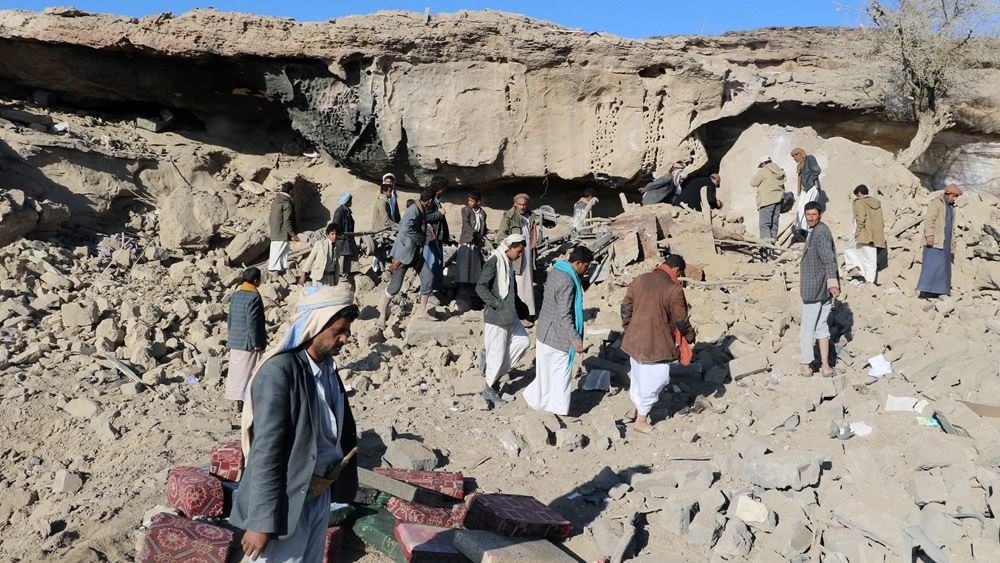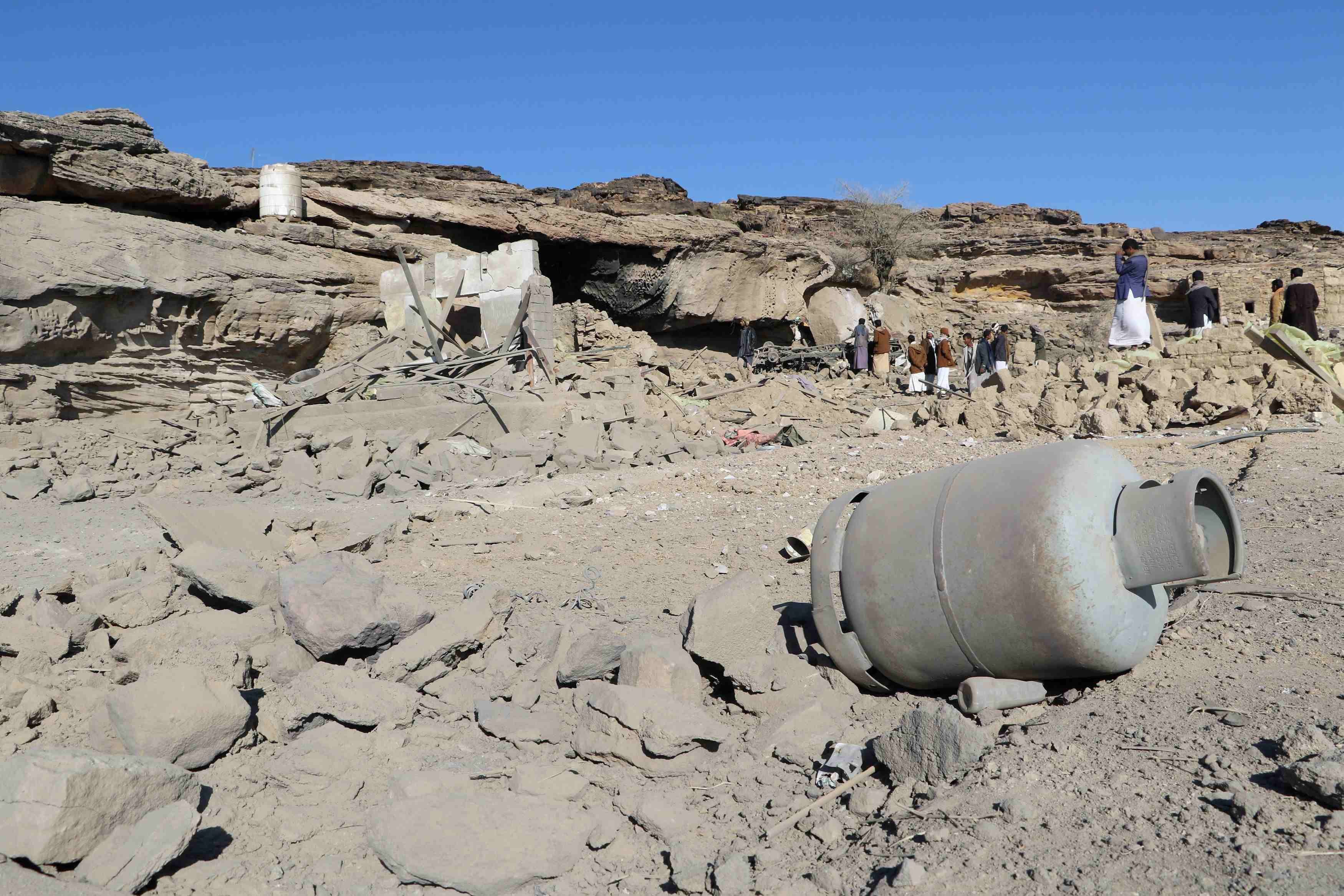
Politics
17:44, 03-Dec-2017
Yemen's conflict: UAE denied Houthi's missle launch, tension remains
CGTN

The United Arab Emirates on Sunday denied a report that Yemen's Houthi group
had fired a missile towards a nuclear plant in the capital Abu Dhabi, official news agency
WAM reported on its Twitter account.
According to the UAE's emergency and crisis management department, the country's air defense system is capable of dealing with such kind of threats and that the Baraka nuclear plant was secure against all eventualities.
Meanwhile, the tension continues to escalate in Yemen as aircraft from the Saudi-led coalition bombed Houthi positions in Sanaa overnight on Sunday, residents and local media said, aiming to shore up supporters of former Yemeni President Ali Abdullah Saleh as they battle the Iran-aligned Houthi group.
Earlier, Yemen's President Abedrabbo Mansour Hadi held an emergency meeting with his advisers in Riyadh to address the current situation.

People gather at the site of an airstrike near the northwestern city of Saada, Yemen, December 3, 2017. / Reuters Photo
People gather at the site of an airstrike near the northwestern city of Saada, Yemen, December 3, 2017. / Reuters Photo
The clashes had added a new layer to an already complex situation in Yemen, one of the poorest countries in the Middle East, where a proxy war between the Iran-aligned Houthis and the Saudi-backed Hadi has caused one of the worst humanitarian crises in recent times.
Saleh announced on Saturday he was ready to turn a "new page" in ties with the Saudi-led coalition fighting in Yemen if it stopped attacks on his country, in a move that could pave the way to end nearly three years of war.
The apparent shift in position came as Saleh's supporters battled Houthi fighters in Hadda, a district in southern Sanaa where members of Saleh's family, including his nephew Tareq, live. It was the fourth day of clashes sparked by what Saleh's General People's Congress (GPC) called an attempt to seize a main mosque in the city.
The fighting has killed dozens of people and wounded hundreds, according to the International Committee of the Red Cross, and raised concern of further casualties among civilians.
Sanaa international airport is under a crippling blockade the coalition imposed last month after a Houthi missile was intercepted near Riyadh. Sanaa streets were empty Saturday night as Yemenis stayed home, fearing renewed clashes.
Yemen's war has claimed more than 8,750 lives since the Saudi-led coalition intervened to prop up Hadi's government against the rebels in 2015, triggering what the United Nations has described as the world's worst humanitarian crisis.
UN envoy Ismail Ould Cheikh Ahmed said he was "deeply concerned," urging all sides to "exercise restraint" and avoid targeting civilians.
7353km
Source(s): AFP
,Reuters

SITEMAP
Copyright © 2018 CGTN. Beijing ICP prepared NO.16065310-3
Copyright © 2018 CGTN. Beijing ICP prepared NO.16065310-3